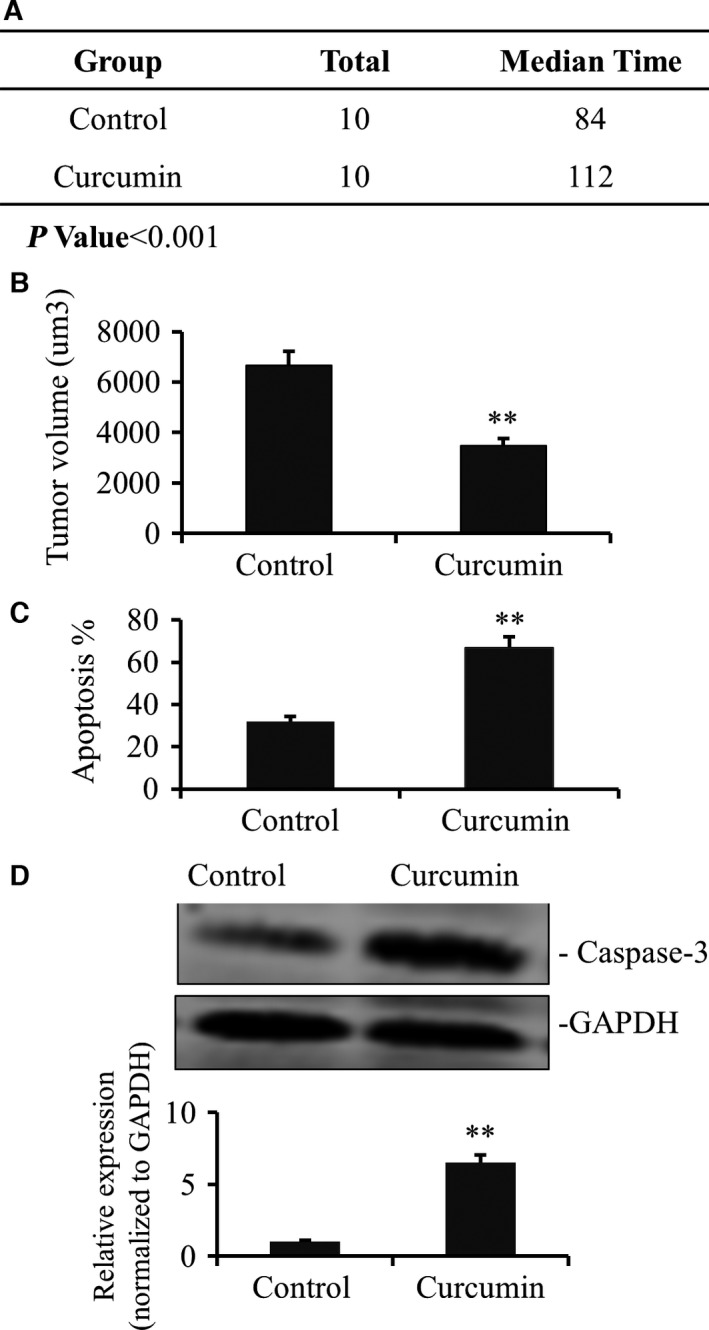Figure 4.

Curcumin suppressed the growth of gastric cancer in vivo. (A) The xenograft gastric cancer was established after injection 1 × 104 different cells in the left foreleg. One group of mice was treated by curcumin (100 mg·kg−1). The survival times were calculated after each mouse was dead suffering sick, moribund, and skinny (n = 10, P < 0.001). (B) Tumor growth in xenografts inoculated from curcumin‐treated or nontreated models after 2 months while all the mice were still survival but sick. (C) Annexin‐V/propidium iodide double‐staining assay was performed to detect the apoptosis levels of curcumin‐treated or not of tumor tissue of models. The data demonstrated a significant apoptotic increase by curcumin (**P < 0.01). (D) Caspase‐3 gene expression also were analyzed by WB. The data also demonstrated a significant apoptotic increase by curcumin (**P < 0.01). Values represent mean and SD from three independent experiments.
